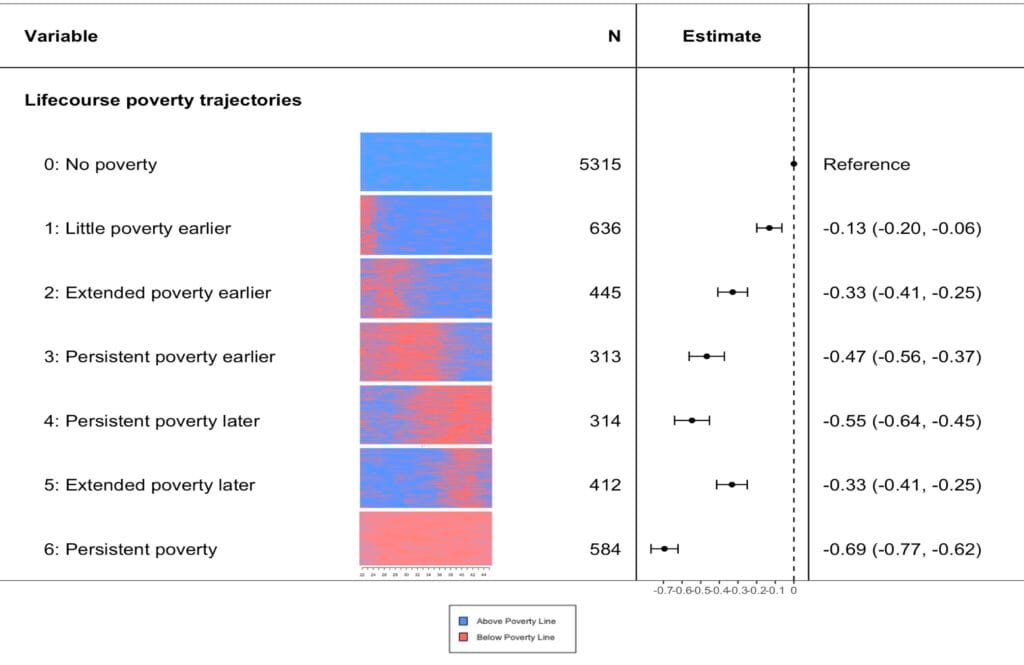Health Disparities
Duration of life-course poverty impacts cognitive performance: an NLSY79 sequence analysis Mia Navarro* Mia Navarro Lucia Pacca Jillian Hebert Anusha Vable
Measures of experienced disadvantage, such as poverty status and SES, are known correlates of cognitive decline and other adverse outcomes. We estimate associations of poverty persistence, including differences in poverty timing and duration, as a potential determinant of midlife cognitive performance. We used data from the National Longitudinal Survey of Youth 1979 (NLSY79, N=8019). We quantified differences between individual level poverty trajectories from ages 20 – 45 using sequence analysis and grouped similar trajectories using cluster analysis. We created a composite measure of cognitive performance using measures of immediate and delayed word recall, serial 7 subtractions and backwards counting. We performed multivariate linear regression analyses to assess the association between lifecourse poverty trajectories and cognitive performance around age 50 and adjusted for race, sex, and birthplace. We imputed missing covariate and outcome values using Multiple Imputation by Chained Equations. There were seven lifecourse poverty trajectories represented in the NLSY data that varied by amount of time in poverty (duration) and poverty timing (Figure 1): no poverty; little poverty earlier; extended poverty earlier; persistent poverty earlier; persistent poverty later; extended poverty later; persistent poverty. Compared to no poverty, those who experienced poverty had lower cognitive performance (b for little poverty = -0.13, 95% CI: -0.20, -0.06), and longer duration of poverty was associated with lower cognitive performance (b for persistent poverty = -0.69, 95% CI: -0.77, -0.62). We found little evidence that timing of poverty was associated with differential cognitive performance. Longer poverty duration was associated with poorer cognitive performance among middle age adults, but there was little evidence that timing of poverty earlier or later in the lifecourse mattered for cognitive performance.

